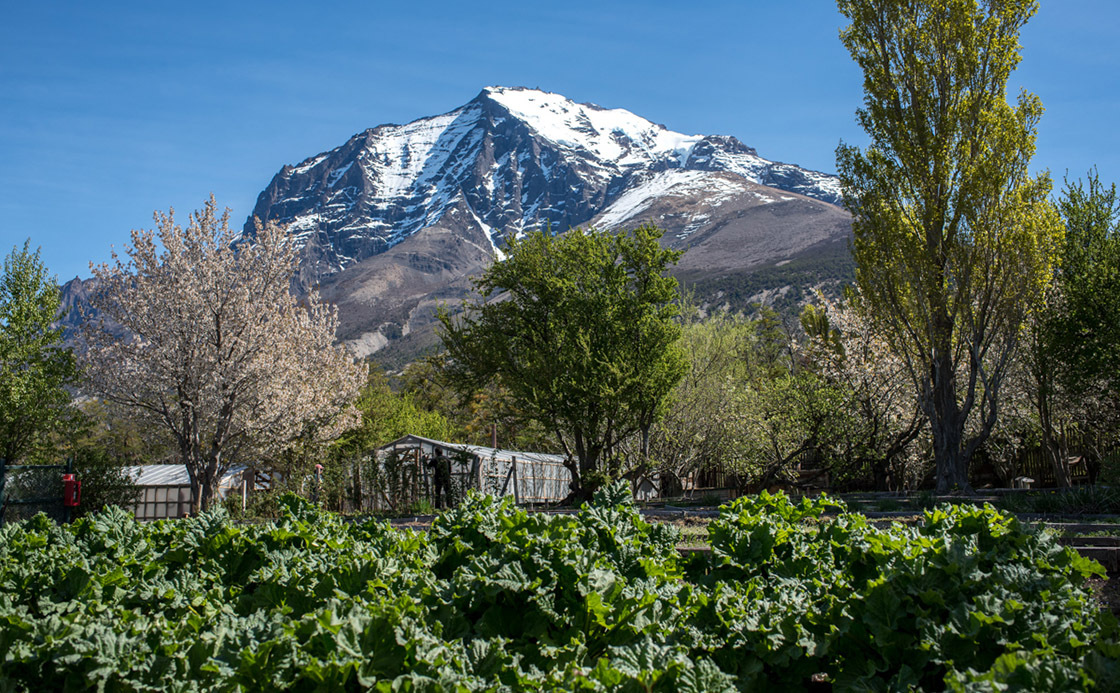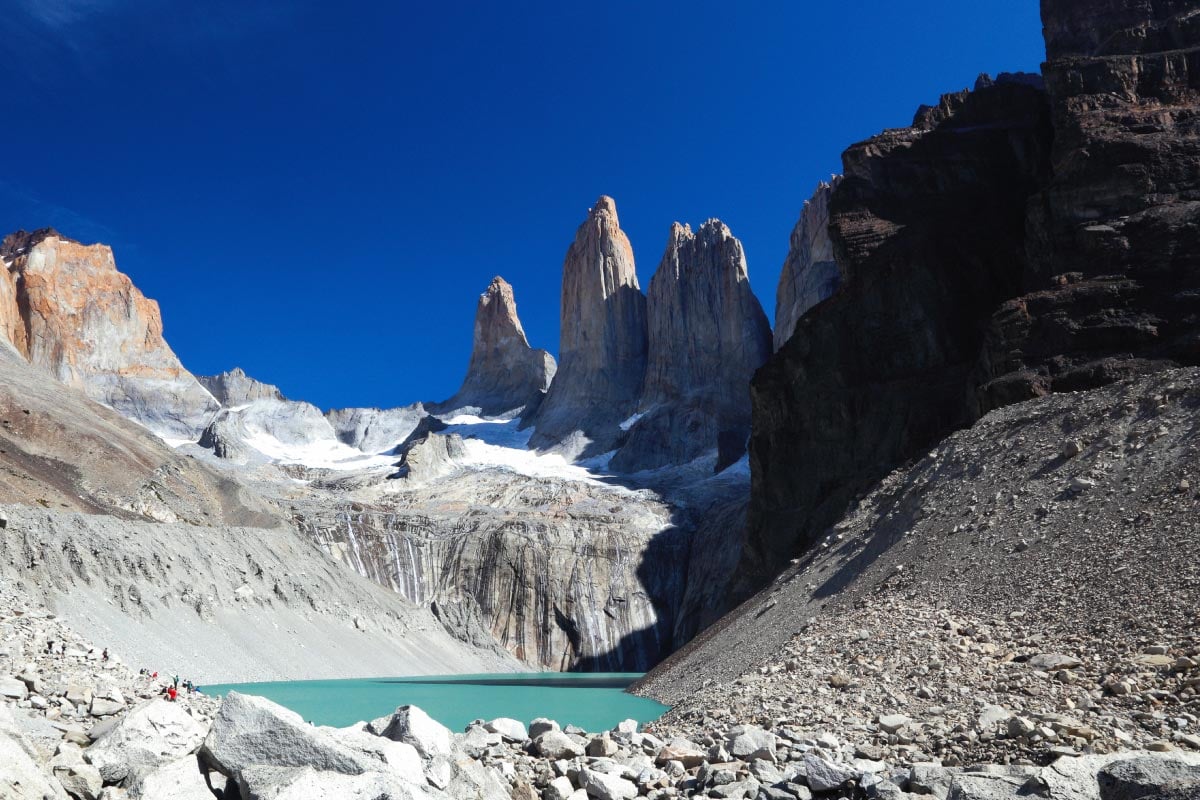Learn something new in the largest organic garden in Chile’s far south
- 6 mins






Discover how organic agriculture works and its incredible contribution to the Patagonian ecosystem! Nourish your ecological spirit amidst the most succulent fruits, vegetables, and herbs! All of this is possible in your visit to the organic garden of Hotel Las Torres in Chilean Patagonia.
One of the lessons we have learned from the pandemic is how important it is to have a greater appreciation for our country's natural areas. That's why, as travel reawakens, a wonder like Torres del Paine National Park has a lot to offer. And if we can learn about how the food we eat is produced while we help care for the environment, the experience is even more complete.
This is possible in the organic garden of Hotel Las Torres Patagonia, a roughly half-hectare plot that has become one of the largest organic gardens in the south of Chile, thanks to hard work and applied knowledge. It is also a tourist attraction that is well worth visiting to understand the regenerative practices that are being implemented and their positive effect on the environment of Patagonia.
What is an organic garden really like?
Unlike traditional agriculture, organic gardening does not use pesticides or chemical fertilizers. From start to finish, foods are produced using natural elements. Planting is carefully planned and the soil is periodically rotated so that it stays fertile and maintains its nutrients for future crops.
With these principles, and a lot of love from our growers, the organic garden at Hotel Las Torres has been cultivated for 50 years. Our crops are nourished by plant and food waste in a biointensive and sustainable process.
"It’s about putting life back into the soil," says Francesca Watts, a natural sciences professional in charge of this magical place at Las Torres Patagonia. "We produce a variety of highly nutritious crops in a small space, without having a negative impact on the environment."
It is a beautiful and fascinating job, but one which requires constant, painstaking work. Today, the organic garden produces 30 different crops—herbs, fruits, and vegetables—in the chilly, intense environment of Torres del Paine.
''Everything living is left alive,” is a motto in the garden. If insects attack the tomatoes, our volunteers will introduce an aromatic herb, like basil, to lure them away and avoid attacking them with pesticides. This delicate balance of life allows Hotel Las Torres Patagonia to offer fresh, chemical-free food to diners at the Coirón Restaurant and Pionero Bar.
Organic gardening, from soil to table

Many of the ingredients served at the hotel come directly from the organic garden, including around 60% of the fruits and vegetables. Although it was originally a family garden, over the years the garden began to supply the hotel's bar and kitchen, as well as mountain hostels and the staff canteen.
The fruits we produce include strawberries, raspberries, currants, cherries, and native Patagonian red gooseberries, while the vegetables and herbs we cultivate the most are lettuce, cherry tomatoes, cilantro, chives, zucchini, radishes, arugula, mustard, carrots, garlic, parsley, sage, oregano, and thyme, as well as varieties not very common in Patagonia, such as shallot, Japanese mizuna, and kale.
In addition, kilos of organic waste are collected every month and returned to the soil. In one banner year, the garden produced 4,250 kilos of food and generated 13 metric tons of compost.
And not to mention the mushrooms! Of the varieties found near the garden is the second most coveted mushroom in the world, the morel, which grows mainly in spring. It is highly valued in the finest restaurants, captivating palates with its intense flavor. In order to avoid indiscriminate exploitation, our garden administrators collaborated with the Fungi Foundation to harvest the morels in a more sustainable way, so as not to deplete the species.
The tree of life

In addition to the food that grows in the garden, the soil of Torres del Paine never ceases to offer surprises. A stone’s throw from the garden, nature made a special appearance with the unexpected germination of an apricot tree, right as the hotel was beginning to be built.
Liliana Kusanovic, the owner of Hotel Las Torres, tells us that the story dates back to the early nineties, when her parents began adorning the building site with plants. At that time, the family would gather around on benches to chat, breathe fresh air and occasionally snack on peaches, apples, and apricots from more northern regions of Chile.
And against all odds, instead of the notro (Chilean firebush) that her parents were trying to grow, what germinated in the fickle Patagonian soil was an apricot tree, sprouted from a pit that was thrown into the wind during an outdoor get-together. “We didn’t know what it was until it bore the first fruits. It was a gift from the fair climate, a lovely surprise that Paine gave us," Liliana recalls fondly.
Take a tour of our organic garden
If you want to learn more about the apricot tree and the organic garden of Hotel Las Torres, we invite you to take our guided tour. The tour can start in the morning or in the afternoon, whatever you prefer. It departs from the Hotel’s reception area and must be booked in advance. We look forward to seeing you!




